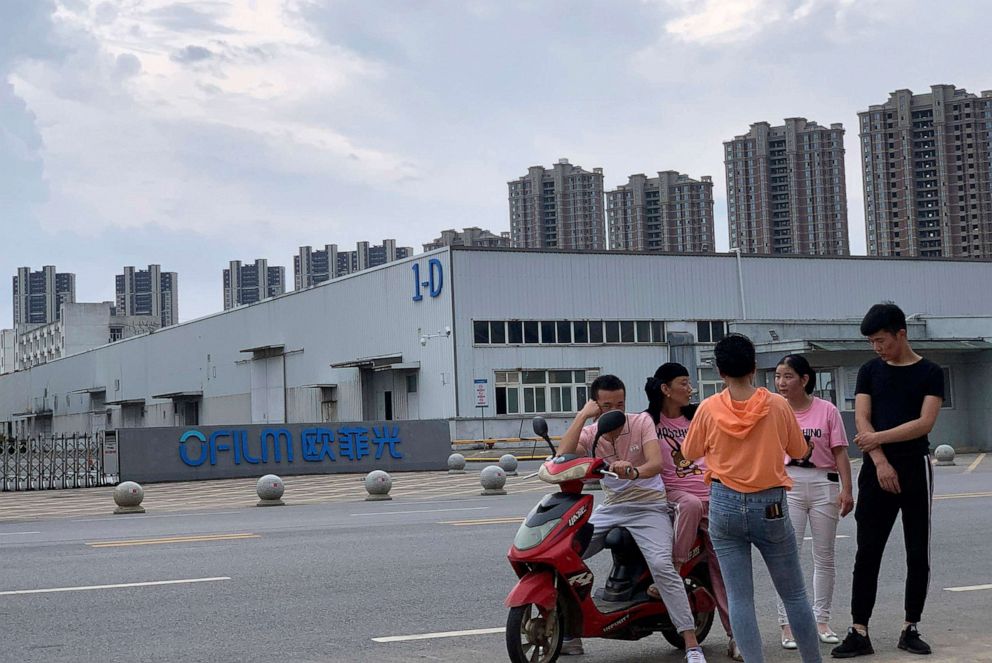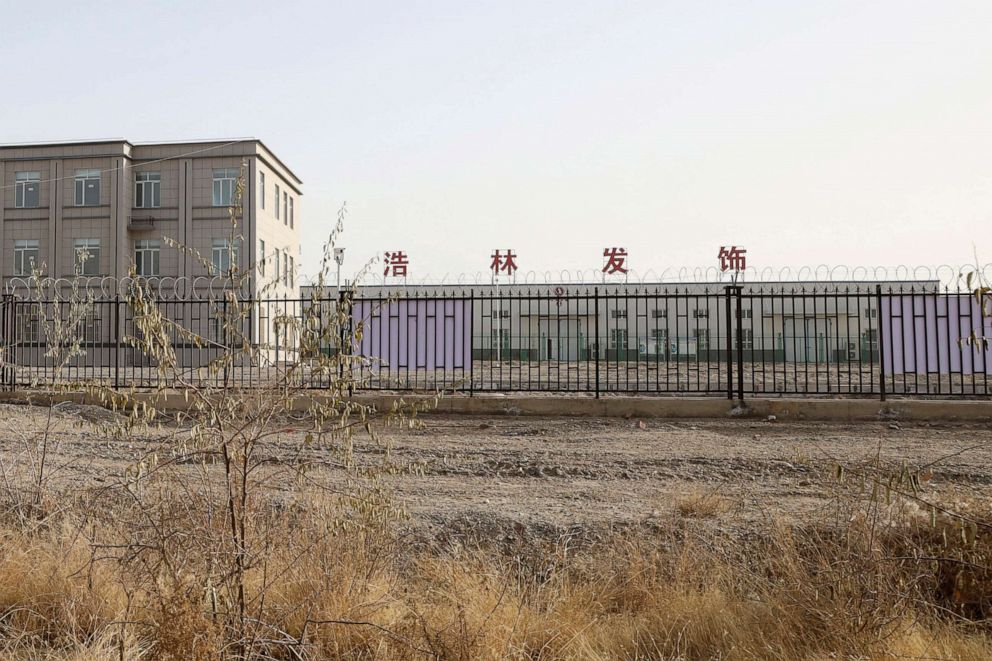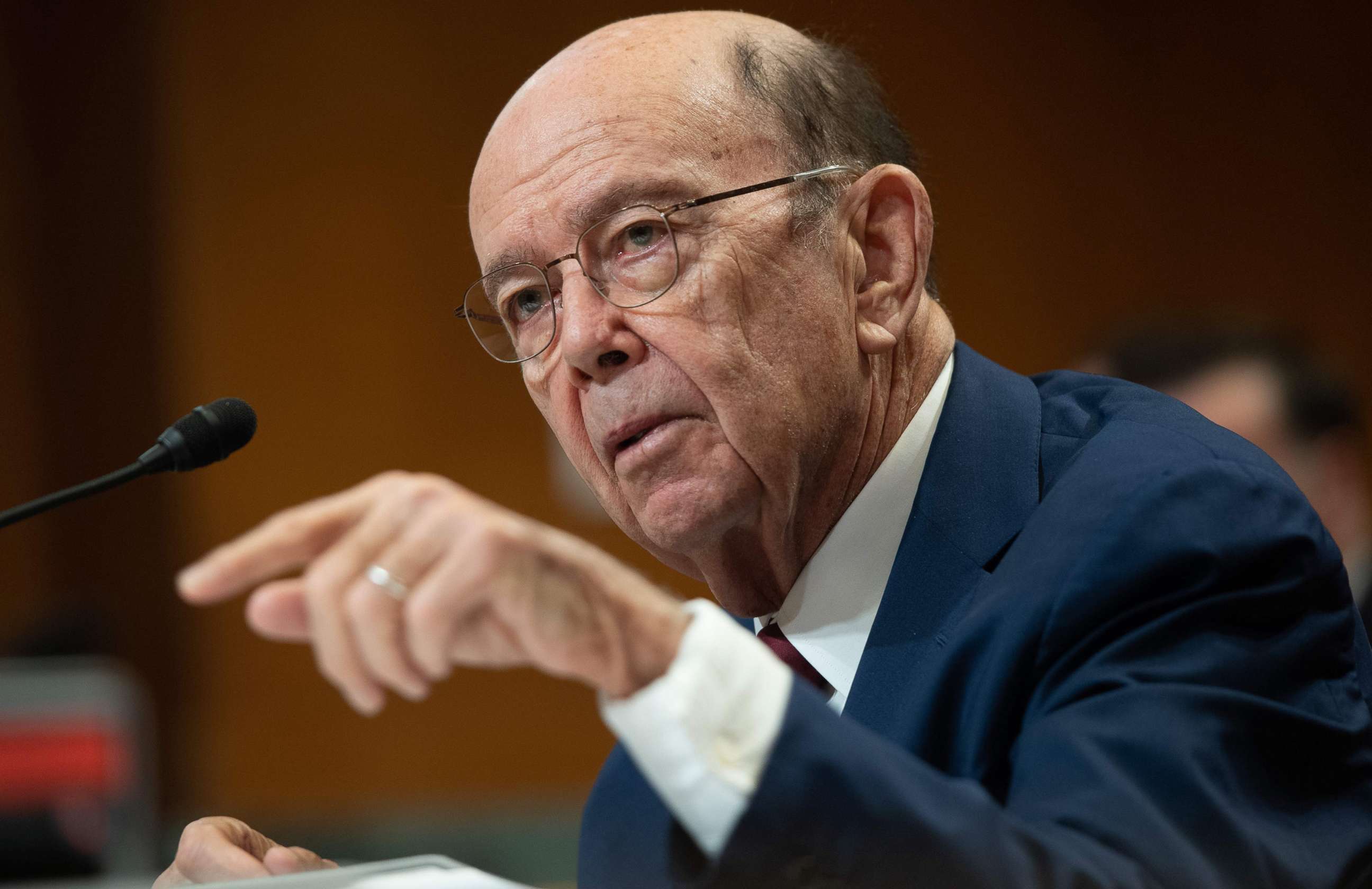US hits 11 Chinese companies with sanctions over human rights abuses
The companies have ties to forced labor of Uyghurs and other minority groups.
The U.S. Department of Commerce announced Monday that 11 Chinese companies would be blacklisted for alleged human rights violations.
The companies are implicated in abuses associated with the People Republic of China's campaign of "repression, mass arbitrary detention, forced labor, involuntary collection of biometric data, and genetic analyses targeted at Muslim minority groups from the Xinjiang Uyghur Autonomous Region," the Commerce Department said in a statement.
The blacklisting means the companies will not be able to purchase U.S. equipment or technology. The companies range from tech firms to apparel makers and even hair product suppliers.

"Beijing actively promotes the reprehensible practice of forced labor and abusive DNA collection and analysis schemes to repress its citizens," Secretary of Commerce Wilbur Ross said in a statement. "This action will ensure that our goods and technologies are not used in the Chinese Communist Party’s despicable offensive against defenseless Muslim minority populations."
Nine of the companies named by the Commerce Department -- including Changii Esquel Textile Company, Hefei Bitland Information Technology Company and Tanyuan Technology Company -- were blacklisted in connection with the practice of forced labor involving Uyghurs and other Muslim minority groups.

The other two companies were hit with the sanctions in connection with conducting genetic analyses used to further the repression of Uyghurs and other Muslim minority groups, the Commerce Department said.

The action from the U.S. government comes after a March 2020 report from the think tank Australian Strategic Policy Institute, which accused major U.S. companies, including Apple and Nike, of using Uyghur labor in their supply chains.
At a news conference Tuesday, China's foreign ministry spokesperson Wang Wenbin blasted the actions taken by the U.S.
"Under the pretext of 'human rights,' the U.S. has abused export restriction measures and put those Chinese companies in its entity list," Wang said. "China firmly opposes this practice as it violates the basic norms governing international relations, interferes in China's internal affairs and undermines China's interests."
Wang argued the U.S. "cares nothing about 'human rights," saying its "true intention is to oppress Chinese companies, disrupt stability in Xinjiang and slander China's Xinjiang policy."
"The international community knows that very clearly," he added. "We urge the U.S. to correct its mistakes, withdraw this decision and stop intervening in China's domestic affairs. China will continue taking all necessary measures to safeguard our companies' legitimate rights and interests."
ABC News' Christine Theodorou contributed to this report.




